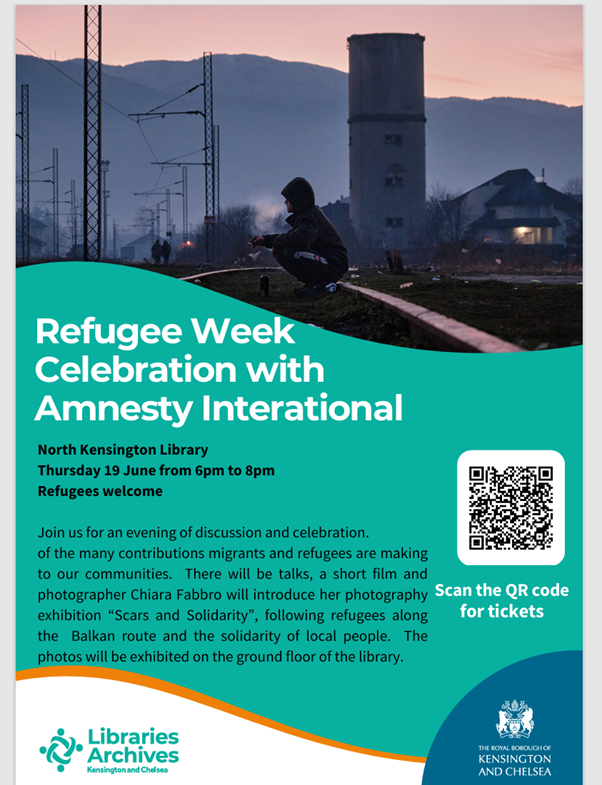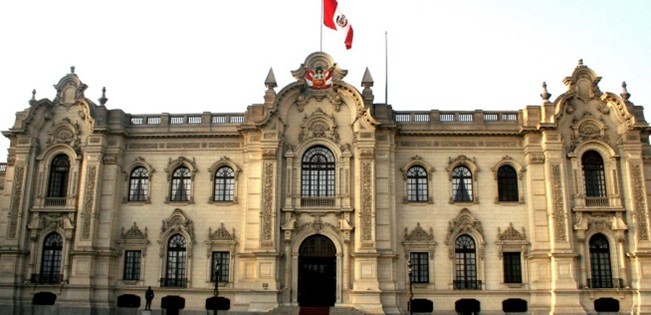|
|
|
|
Amnesty International Bournemouth Poole Christchurch Group
local news & events Amnesty International group for Bournemouth, Poole & Christchurch
by zarganar
|
|
|
|
by zarganar
Refugee week this year will be even more important than ever. We need to do all we can to roll back the tide of misinformation, scapegoating, hate speech and hostility. Please let us know about events you are organising in your communities so that we can share ideas and support each other across the country. And as always we are happy to give talks, on-line and in person. Kind regards Ulrike and the Amnesty Europe country coordinators team.
by Ulrike Schmidt
Fuelled by the hateful rhetoric of Trump, Farage and far right leaders across Europe refugees fleeing war, violence and persecution are confronted with increasing hostility in most European countries and even deadlier routes.
Migration has become a deeply polarising issue, often framed through opposing political ideologies. This divisive discourse serves as a harmful and dehumanising tool, reinforcing the “othering” of people on the move. As political groups and governments continue to weaponize migration to further their agendas, those most affected by increasingly hostile policies are left in precarious and vulnerable situations.
It must be our role as Human Rights defenders to challenge the scapegoating of refugees and migrants on every step. Refugees and migrants are not the cause of the housing crisis, the selling off and halt in building council housing is. Refugees and migrants are often working in the NHS, they are not responsible for long waiting lists, cuts in funding are. Cuts in education budgets are responsible for large class sizes, in fact in London many schools are closed due to declining pupil numbers; instead of enhancing education by teaching smaller groups schools are amalgamated or shut and pupils shoved into large classes.
Refugee Week gives us the opportunity to organise events celebrating the contributions refugees are making to society at large and our communities and to challenge the hateful rhetoric from populists, far right and some of our political leaders. Refugees Welcome ! Seeking Asylum is a Human Right !
Hayward Heath group are organising a film event for 20. June, International Refugee day. Watford group are organising a screening of “Green Border “ for the 19th of July. I am involved in organising 2 very different events : an evening based on film and talk at Kensington North Library and a celebration with music and poetry in Walthamstow.

Join us for an evening of discussion and celebration.
We are celebrating the many contributions migrants and refugees are making to our communities, working in the NHS and many other parts of public service. We are going to show how European institutions are undermining human rights to fortify Fortress Europe, in Poland, Greece , Italy , UK … And we are celebrating how ordinary people are showing humanity, compassion and solidarity.
We are featuring the photo exhibition
‘Scars and solidarity’ by Chiara Fabbro, the short film Dover 82 with Aria Danaparamita, and Amnesty International country coordinators Lucja Jastrzebska and Ulrike Schmidt.
The event is free but space is limited : please book your place on Eventbrite
And for a celebratory fundraiser for Care4Calais with life-music, poetry and cakes join No-0ne is a Stranger in Walthamstow. Organised by Stand up to Racism, Love Music hate Racism and Care4Calais. I will be contributing the talk on Pylos and the deadly effects of Fortress Europe. 
Background : in 2023 over 117 million people were forcibly displaced world-wide : 3 out of 4 refugees are hosted in low and middle income countries near their countries of origin. 75% of displaced people globally are from just 20 countries featured on the IRC’s latest Emergency Watchlist, which highlights the places at greatest risk of facing deteriorating humanitarian emergencies this year. However, the vast majority of people forced from their homes remain in their own region , and just a tiny fraction seek to reach protection in Europe. Still, EU states have consistently failed to reach an agreement on how to deal with people seeking safety on its territory, resulting in political polarisation and immense suffering and human rights violations at Europe’s borders. (figures from Rescue.org/EU). [Read more…]
by zarganar
Check out our new website at https://amnestysouthamerica.org.uk!
This month we bring you news from Peru, Colombia, Chile, Argentina, Venezuela and Brazil.
Highlights are:
PERU

Amnesty has called on the Peruvian authorities to repeal a recent amendment to a law which, it says, violates freedom of expression, freedom of association and access to justice for hundreds of victims in Peru. The amendment, which relates to the functions of the Peruvian Agency for International Cooperation (APCI), strengthens APCI’s control over the work of civil society organisations, leaving the door open to arbitrary decisions, discretionality and the censoring of voices that are critical of and inconvenient for those in power, while weakening State accountability.
Human Rights Watch (HRW) has called on the Peruvian President to veto an amendment to Peru’s General Law on Persons with Disabilities, recently passed by the Peruvian Congress, which threatens to institutionalise people with disabilities through the creation of specialised care centres and temporary and permanent shelters. According to HRW, the amendment ignores the principles of the Convention on the Rights of Persons with Disabilities (CRPD), to which Peru is a party, and which promotes deinstitutionalisation. [Read more…]
by zarganar
Human Rights, Justice and Equality are under attack across Europe. This month it has been the Polish government suspending the right to asylum, Hungary further cracking down on LGBT communities by banning Pride, and brutal repression against people claiming the right to protest in Turkiye. The Mayor of Istanbul has been imprisoned. On 8th of April we celebrated International Roma Day, but just shortly after Amnesty and the European Roma Rights Centre released a new report on how discrimination in education persists in Slovakia, despite years of campaigning.
Budapest Pride is under threat. A new law banning assemblies that support LGBTI rights is a direct attack on LGBTI people, their allies, and the right to protest. Pride is a peaceful demonstration of equality and justice. The Hungarian authorities must ensure LGBTI people can march freely and demand their rights peacefully, free from intimidation, harassment or violence.
Since 2010, Hungary has witnessed a marked deterioration in the rights and freedoms of its LGBTI community, largely driven by a series of laws and governmental actions aimed at limiting LGBTI visibility and expression. One of the most significant legislative moves was the introduction of the ‘Propaganda Law’ (Act LXXIX of 2021), which severely restricts the depiction of LGBTI identities in public life, including in educational materials, media, and advertisements.
The law was passed under the pretext of protecting children from content considered harmful to their “moral development.” However, its broad and vague language has resulted in far-reaching consequences, effectively banning content related to homosexuality, gender identity, and sexual reassignment. This has led to the widespread censorship of books, films, and other public resources featuring LGBTI themes, effectively removing LGBTI-inclusive materials from schools, bookstores, and public platforms.
These actions have severely limited access to information for both LGBTI individuals and the general public. The legal and societal crackdown initiated by this law has had devastating effects on the LGBTI community in Hungary, contributing to an atmosphere of fear and repression. Restrictions on public gatherings, the censorship of media and educational materials, and the stigmatization of LGBTI individuals have led to increasing isolation, discrimination, and violence against LGBTI people.
Please sign and share the petition !
https://www.amnesty.org/en/petition/let-pride-march-in-hungary/.
 Bratislava, Brussels 16 April 2025: Ten years after the EU launched an infringement procedure against Slovakia for breaching the EU Race Equality Directive, Romani children still face entrenched discrimination in education. In a new report released today, Amnesty International and the European Roma Rights Centre (ERRC), condemn the “widespread and growing racial division in education”, and call on the Slovak government to take urgent and systemic action to end segregation in its schools.
Bratislava, Brussels 16 April 2025: Ten years after the EU launched an infringement procedure against Slovakia for breaching the EU Race Equality Directive, Romani children still face entrenched discrimination in education. In a new report released today, Amnesty International and the European Roma Rights Centre (ERRC), condemn the “widespread and growing racial division in education”, and call on the Slovak government to take urgent and systemic action to end segregation in its schools.
The briefing report, Separate & Unequal: School Segregation Persists for Roma in Slovakia, takes stock of legislative and policy responses following the European Commission’s referral of Slovakia to the European Court of Justice (ECJ) in April 2023 but finds these measures insufficient to address systemic practices of segregation. Legislative reforms, including amendments to the School Act, lack the enforceability and clarity needed to address entrenched disparities. [Read more…]
by zarganar
This month we bring you news from Colombia, Venezuela, Peru, Paraguay, Argentina, Ecuador and Brazil.
Highlights are:
COLOMBIA
 Amnesty has issued a new Urgent Action calling on President Petro to stop making stigmatising statements about civil society organisations in Catatumbo and instead be open to dialogue and to the participation of local organisations in the implementation of human rights centred solutions to the Catatumbo crisis. This follows a statement by President Petro on 3 March claiming that civil society organisations in Catatumbo were “permeated” and “subordinated” to armed groups. Amnesty said that, besides being unjustified and unacceptable, this statement endangered the members of these organisations and legitimised the violence that they, as well as the civilian population of Catatumbo in general, have been enduring since mid-January. This is a letter we sent at our April meeting you can use.
Amnesty has issued a new Urgent Action calling on President Petro to stop making stigmatising statements about civil society organisations in Catatumbo and instead be open to dialogue and to the participation of local organisations in the implementation of human rights centred solutions to the Catatumbo crisis. This follows a statement by President Petro on 3 March claiming that civil society organisations in Catatumbo were “permeated” and “subordinated” to armed groups. Amnesty said that, besides being unjustified and unacceptable, this statement endangered the members of these organisations and legitimised the violence that they, as well as the civilian population of Catatumbo in general, have been enduring since mid-January. This is a letter we sent at our April meeting you can use.
VENEZUELA
Russian President Vladimir Putin and Venezuelan President Maduro have agreed that the two countries are “strategic partners“, announcing that they intend to expand ties. It comes after US President Donald Trump’s decision to revoke a sanctions waiver permitting US company Chevron to operate in Venezuela. Putin is one of the few leaders to have recognized Maduro’s re-election, widely seen to be fraudulent.
Venezuela has reached an agreement with the United States to resume the flights carrying migrants to Venezuela. The agreement comes after a diplomatic argument between the countries after the United States deported Venezuelan migrants to El Salvador. The flights are being challenged. The US’s deportation drive is under challenge in US courts.
The Venezuelan army is alleging that it uncovered a US plot seeking to fabricate an incident in the Essequibo region, as a ruse for military action. The resource-rich Essequibo region, currently recognised as part of Guyana, is disputed by Venezuela. The claims come after US Secretary of State Marco Rubio travelled to the region and reaffirmed the US’s commitment to Guyana’s security.
The Urgent Action issued at the end of February remains active. At least four human rights defenders are currently arbitrarily detained for defending human rights: Javier Tarazona, detained in 2021; Rocío San Miguel, Carlos Julio Rojas, and Kennedy Tejeda, all three detained in 2024. They are prisoners of conscience and must be released immediately and unconditionally. We demand Nicolás Maduro ensures they are released as a matter of urgency. Whilst in state custody they should not subjected to torture and remain safe.